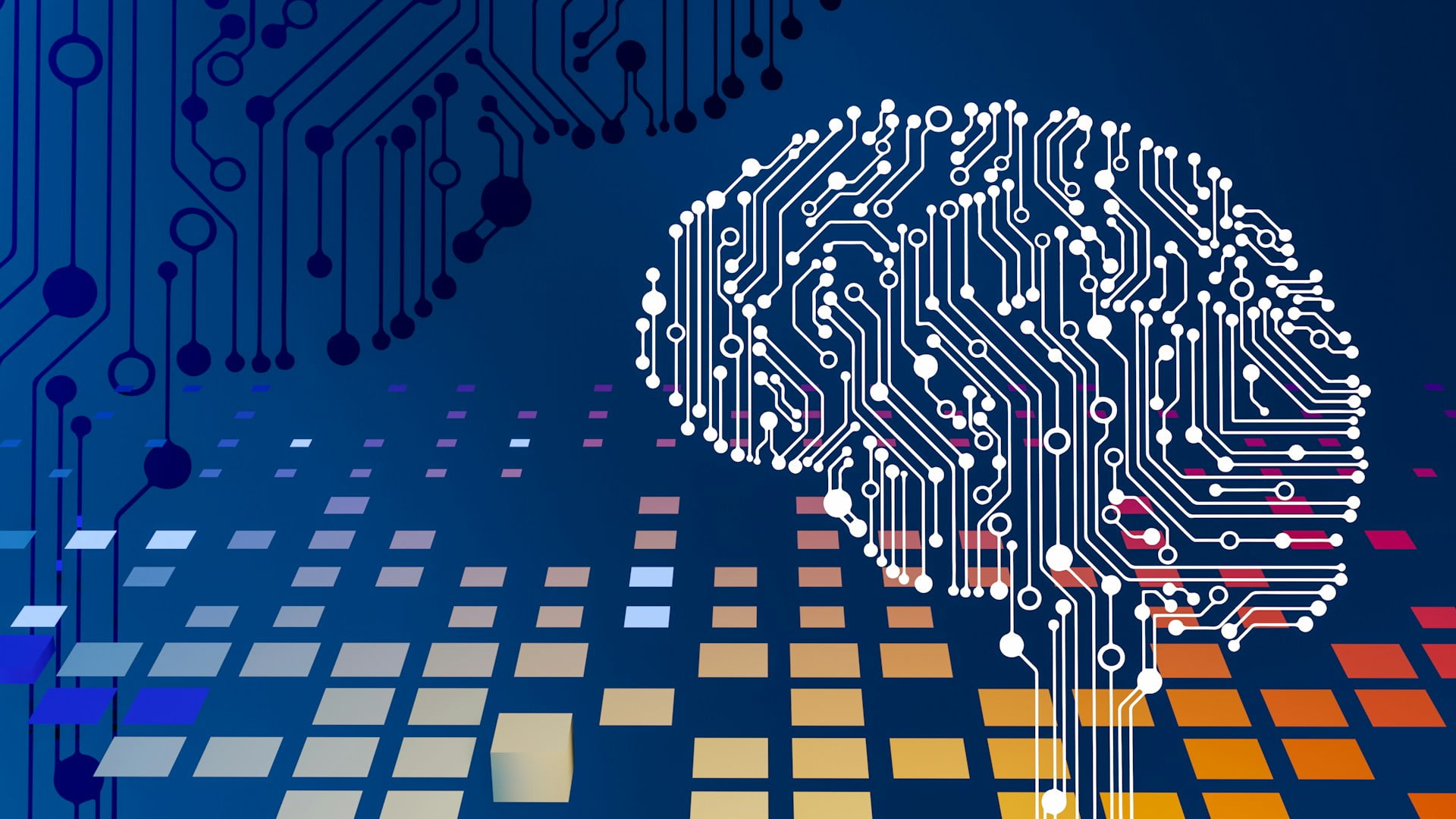One of the fastest growing jobs: Why are Site Reliability Engineering roles in such demand?
Learn more about why site reliability engineers are one of the most in demand roles in the industry.

Financial services
Expertise in core banking, BaaS integrations, payments, and GenAI-enhanced financial solutions.

Healthcare
People-centric healthcare design and solutions, from virtual care, integrations, to smart devices.

Insurance
Modern solutions including self-service, on-demand, and algorithm-driven personalization.

We’re purposefully shaping the digital future across a range of industries.
Discover some of our specific industry services.
Discover moreNovember 21, 2023
Check out our most recent interview about AI with Conrado Viña, Founding Partner at Qubika.

Conrado Viña, one of the founding partners here at Qubika, recently had a chat with AI TechPark. He took the opportunity to share his experiences, from his professional beginnings to the establishment of Qubika with his fellow founders. He explored how artificial intelligence (AI) is changing the way we approach software engineering. Conrado also discussed the ups and downs of integrating AI across different sectors, and how Qubika is using AI to improve the software development lifecycle. Check out the full interview below.

Kindly brief us about yourself and your professional journey as the Founding Partner at Qubika.
My Qubika journey began in 2005, as one of the founders of Moove It, a leading technology services provider with multiple locations in the US and South America. We experienced rapid growth, and in 2023 we made the decision to merge with December Labs, with the support of a New York based investment fund, Recognize.
Qubika is the result of this merger and our aim is to create a next generation service provider, with data and AI at the heart of what we do. For the past several years, we’ve been focusing on building out our data and AI capabilities via our dedicated studio – and we have a track record of helping well-known businesses implement machine learning into their processes and products.
How do you see AI revolutionizing the software engineering process in the near future, and what are the key areas where it will make the most significant impact?
This is a great question that’s at the heart of what differentiates Qubika. In the past year, the speed of progress has been incredible, particularly with large language models and generative AI. We’ve been working in data and AI for many years, so we’re well aware of the power of these technologies.
There are two main areas where we use AI and where we see that a revolution is happening:
We are currently using AI to accelerate the traditional software development and engineering process. Our belief is that the impact of AI on efficiency will far surpass a 10x increase. If used right, developers should be able to multiply their output and their quality, greatly compounding the value of their work year over year. We are working internally and with our clients to build these capabilities, and we are looking to accelerate the adoption of this technology.
Throughout the US we are already assisting businesses in various industries, including fintech, healthtech, and media, implement AI into their products and services. They are already serving their customers more efficiently and providing a premium customer experience. Just like with software development, these industries will see compounding effects from the use of AI.
However, as AI continues to gain popularity, it’s essential to approach its implementation with a strong sense of caution, particularly for business leaders. The current AI market is booming, flooded with a plethora of tools and models, making it somewhat chaotic to navigate. The sheer number of options available can be overwhelming.
To address this challenge, at Qubika, we’ve established a dedicated research team. Their primary focus is to stay abreast of the latest developments in the AI landscape by continuously researching academic papers and rigorously testing various AI tools. This proactive approach enables us to maintain a clear perspective on the ever-evolving AI landscape. We can then provide our customers with honest and accurate benchmarks and assessments. Our goal is to offer a comprehensive understanding of the AI solutions available while prioritizing data security and carefully evaluating how their data is being utilized.
We want to be regarded as transparent and responsible experts on AI technology, ensuring our customers can confidently embrace AI solutions that align with their unique needs and requirements.
As a Founding Partner at Qubika, how is your company leveraging AI to enhance the software development lifecycle, and what benefits have you observed so far?
We’re using AI tools to both speed up, and increase the quality of, software development. We’re running pilots with numerous commercially available tools, such as Github Copilot, Amazon Code Whisperer, Open AI, and Meta AI. We’re seeing the market of available AI tools grow incredibly quickly, but for the time being we’ve decided to focus on these four. Some of these tools, such as Github Copilot, have the advantage of being able to be embedded within the IDEs we use the most.
Interestingly, the greatest benefits we’re seeing are among our mid-level and senior development people. They are achieving a 30%-50% increase in productivity with the use of these tools. In particular, the tools are helping with the building of base artifacts to save time.
In what specific ways can AI technologies improve the efficiency and productivity of software development teams, and how can they contribute to faster product releases?
AI technologies can have a significant impact on improving the efficiency and productivity of software development teams. While we have already started benefiting and realizing its potential, I believe we have just scratched the surface of all that it can do.
Some specific ways AI contributes to these improvements are: automated code generation, test automation – including bug detection and even bug fixing, code documentation, and code refactoring to name a few. Meanwhile, for the front-end UX, AI is helping to streamline design workflows, such as by automatically optimizing design elements. I am sure I am leaving many other areas out that we are not thinking of, or not yet focusing on, at this time.
Some individuals express concerns about AI replacing human software engineers. How do you view the balance between AI automation and human expertise in the software engineering process?
We’re at the early stages of the AI revolution, and we do not see AI replacing human software engineers any time soon. Rather, we see engineers leveraging the power of AI more and more – right now, in helping to review code and speed up typical development tasks. Over time, we’ll see human work and AI collaborate more closely, where we’ll see bots essentially acting as peer developers within a team.
And while it’s true that AI won’t replace jobs outright, it is crucial to acknowledge that proficiency in utilizing AI will become an increasingly valuable skill. Embracing AI technologies and continuously enhancing our AI-related skills will be the key to staying competitive and thriving in this dynamic technological landscape.
How can AI-powered tools assist in software testing and quality assurance, and what challenges do you foresee in their widespread adoption?
Testing was one of the first areas in the lifecycle to adopt AI and AI-powered tools, and it’s a natural progression from the use of automation. We’ve already seen the shift to continuous testing, as development teams are forced to speed up to keep pace with business requirements and the use of DevOps and CI/CD. Today we’re seeing the use of AI to make testing automation “smarter”, providing guidance to testers to know exactly what they should be testing, or focusing the automation on. For example, AI is now able to plan and create test cases, enhancing the automation process of QA.
Using AI tools, QA teams can automate numerous tasks, delegating them to these advanced technologies. This shift allows QA professionals to concentrate on elements AI cannot replicate, such as comprehending the end user’s human perspective and testing software through that lens. By integrating both approaches, we can achieve enhanced test coverage and produce higher quality products.
An interesting point to mention here is that as AI takes on a greater role in the broader development lifecycle, testing becomes even more important than it currently is. AI is not infallible – and using it to develop software products can introduce new risks for businesses. Testing therefore becomes essential to mitigate those risks.
One of the key challenges in software engineering is maintaining code quality and avoiding technical debt. How can AI contribute to identifying and addressing these issues proactively?
The use of AI to maintain code quality is one of the key use cases for the technology today. Forward-thinking organizations are already using AI to automatically refactor code and perform code analysis, which helps maintain and improve software quality. In particular AI helps developers spot issues early on in the life cycle, essentially providing another set of eyes on their code.
There is a lot that AI can already do, and it will only get better. Again, to name some examples, AI can do automated code reviews, predictive maintenance (which areas of the code could become problematic), and automatic bug detection and fixing.
With the increasing complexity of software projects, project management becomes crucial. How can AI-driven project management tools assist in better planning, resource allocation, and risk management?
AI-driven project management tools can support better planning, resource allocation, and risk management for software projects.
One example at Qubika is the use of GPT in conjunction with a Jira template to streamline ticket refinement. This not only alleviates the burden on our project managers but also expedites the ticket creation process for technical teams. Previously, the time taken to generate a ticket often surpassed the time needed to address it. Moreover, we utilize GPT to rapidly craft the foundational structure of a project roadmap, significantly accelerating the project’s initiation phase.
How do you see AI influencing the way software engineers collaborate and communicate within teams or across organizations?
We expect to see AI-infused bots operating side by side with human development teams. This will introduce new ways of collaboration – for example, first having a bot review the code, before it goes to a human. Having said this, software development will remain a highly human endeavor, so the importance of collaborating, communicating, and building a strong, high performance culture will remain essential.
Finally, what advice would you give to software engineering professionals who are eager to embrace AI and stay ahead in their careers amidst this transformative phase?
AI represents a truly fundamental change. This means developers must urgently learn how to use AI to become more efficient, productive, and skilled in their work. Failure to do this will be like a chef trying to cook a gourmet meal without a knife. It’s already become that essential and that critical for developers – and will only become more so in the coming months and years.

By Carin Carlin
Communication Specialist
Receive regular updates about our latest work
Learn more about why site reliability engineers are one of the most in demand roles in the industry.

Read more about why it is important to include a software engineering perspective when creating an MVP.

When OpenAI launched the closed beta of GPT-3, a.k.a. the most powerful language model ever built, the Internet went crazy. Learn more about it!

Receive regular updates about our latest work
Get in touch with our experts to review your idea or product, and discuss options for the best approach
Get in touch